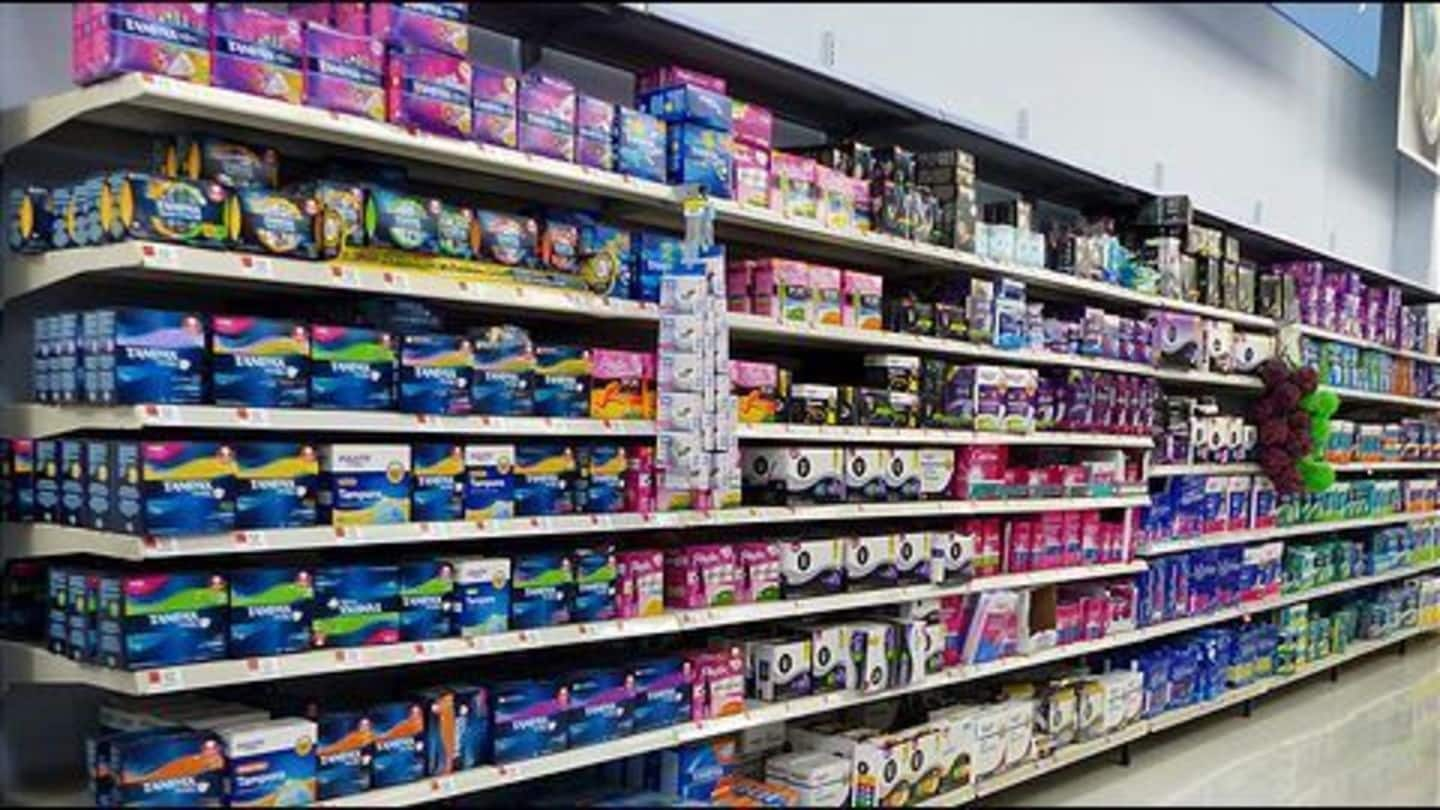
Sanitary Napkins - How safe are menstrual hygiene products?
What's the story
Who has ever questioned the safety of menstrual hygiene products in India, where menstruation is still a hush-hush topic? Sanitary napkin manufacturers aren't even required by law to disclose what goes into making them. Also, no studies exist to prove the sold napkins are safe. Still, 12% of Indian women use them; don't they deserve to know "what goes onto and into their bodies"?
Sanitary Pads
Chemicals used raise questions over safety
Bhawana Chanana, Associate Professor of Fabric & Apparel Science at Delhi University's Lady Irwin College, said hygiene parameters of sanitary napkins should be disclosed on packages. She added women don't ask questions while buying such products which works to the advantage of sellers/manufacturers. She also came across instances where products rejected in the US and Germany have been recycled and sold in India.
Safety Certification
Consumers assume products are safe based on official certification
Do you know that official agencies test sanitary napkins as per standards that weren't updated since 1980? The Bureau of Indian Standards 1980 specifies tests that are too basic; there's no requirement to test the ingredients' toxicity. Wager Hygiene CEO K Jinoj said on the basis of such standards all napkins will pass the tests; parameters to check the safety need to be included.
Information
The US Food and Drug Administration (FDA)
FDA recommends biocompatibility tests appropriate for the level/duration of contact of users with sanitary napkins. It is aware of the associated risks like vaginal injury, adverse tissue reaction, and toxic shock syndrome and recommends that manufacturers conduct pre-clinical toxicology and microbiology tests.
Process
Process of making sanitary napkins
The purpose of sanitary napkins is to absorb and retain menstrual fluid discharge along with providing comfort to women. But the process of making the pads in India has not changed in decades. Nanotechnologist Chandra Shekhar Sharma of the Indian Institute of Technology-Hyderabad's Chemical Engineering Department said no one denies the health hazards of using the commercially sold napkins.
Inferior Quality
All leading brands are global players
Hygiene should be the primary consideration while choosing pads; unfortunately, Indian women consider the cost, design, and packaging. All leading brands in India's sanitary market are global players. They sell similar products worldwide, but the quality of ingredients/chemicals in India is believed to be inferior. In a 2003 test, Ahmedabad-based Consumer Education and Research Centre found dirt and even ants in some napkin samples.
Chemical Concerns
Dioxins, SAPs - The most contested constituents of sanitary napkins
According to a 2016 paper by IIT-H's Sharma, dioxins used for bleaching the cotton/material potentially cause pelvic inflammatory disease, ovarian cancer, immune system damage, impaired fertility, and diabetes. A 1993 study conducted on monkeys found that 79% had developed endometriosis after exposure to dioxin in food. The US restricted using superabsorbent polymers (SAPs) in tampons due to a possible link to toxic shock syndrome.
Direct Route
Direct contact with the vaginal region
The vulvar and vaginal tissues are more permeable and different from the rest of the body. The mucous membranes, blood and lymphatic vessels on the vaginal walls allow direct absorption of chemicals into the circulatory system. Studies show the rapid absorption exposes women to higher-levels of chemicals from menstrual hygiene products as the area of contact has a direct route to the reproductive organs.
Access
Questions not raised over the quality
Only 10-12% of women use menstrual napkins, so enough questions aren't raised over their quality. Making sanitary napkins more accessible, even in the rural areas, may pressurize companies to come up with better quality products. Padma Shri recipient Arunachalam Murugunantham, the inventor of the low-cost sanitary napkin-making machine, said the 90% of women without access to sanitary products are at even higher health risk.